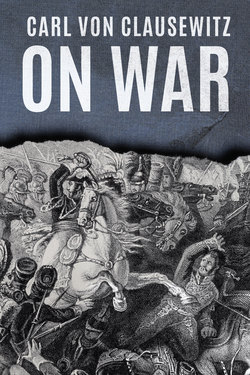Читать книгу On War - Carl von Clausewitz - Страница 39
На сайте Литреса книга снята с продажи.
CHAPTER V. Of Bodily Exertion in War
ОглавлениеIf no one were allowed to pass an opinion on the events of War, except at a moment when he is benumbed by frost, sinking from heat and thirst, or dying with hunger and fatigue, we should certainly have fewer judgments correct objectively; but they would be so, subjectively, at least; that is, they would contain in themselves the exact relation between the person giving the judgment and the object. We can perceive this by observing how modestly subdued, even spiritless and desponding, is the opinion passed upon the results of untoward events by those who have been eye-witnesses, but especially if they have been parties concerned. This is, according to our view, a criterion of the influence which bodily fatigue exercises, and of the allowance to be made for it in matters of opinion.
Amongst the many things in War for which no tariff can be fixed, bodily effort may be specially reckoned. Provided there is no waste, it is a coefficient of all the forces, and no one can tell exactly to what extent it may be carried. But what is remarkable is, that just as only a strong arm enables the archer to stretch the bowstring to the utmost extent, so also in War it is only by means of a great directing spirit that we can expect the full power latent in the troops to be developed. For it is one thing if an Army, in consequence of great misfortunes, surrounded with danger, falls all to pieces like a wall that has been thrown down, and can only find safety in the utmost exertion of its bodily strength; it is another thing entirely when a victorious Army, drawn on by proud feelings only, is conducted at the will of its Chief. The same effort which in the one case might at most excite our pity must in the other call forth our admiration, because it is much more difficult to sustain.
By this comes to light for the inexperienced eye one of those things which put fetters in the dark, as it were, on the action of the mind, and wear out in secret the powers of the soul.
Although here the question is strictly only respecting the extreme effort required by a Commander from his Army, by a leader from his followers, therefore of the spirit to demand it and of the art of getting it, still the personal physical exertion of Generals and of the Chief Commander must not be overlooked. Having brought the analysis of War conscientiously up to this point, we could not but take account also of the weight of this small remaining residue.
